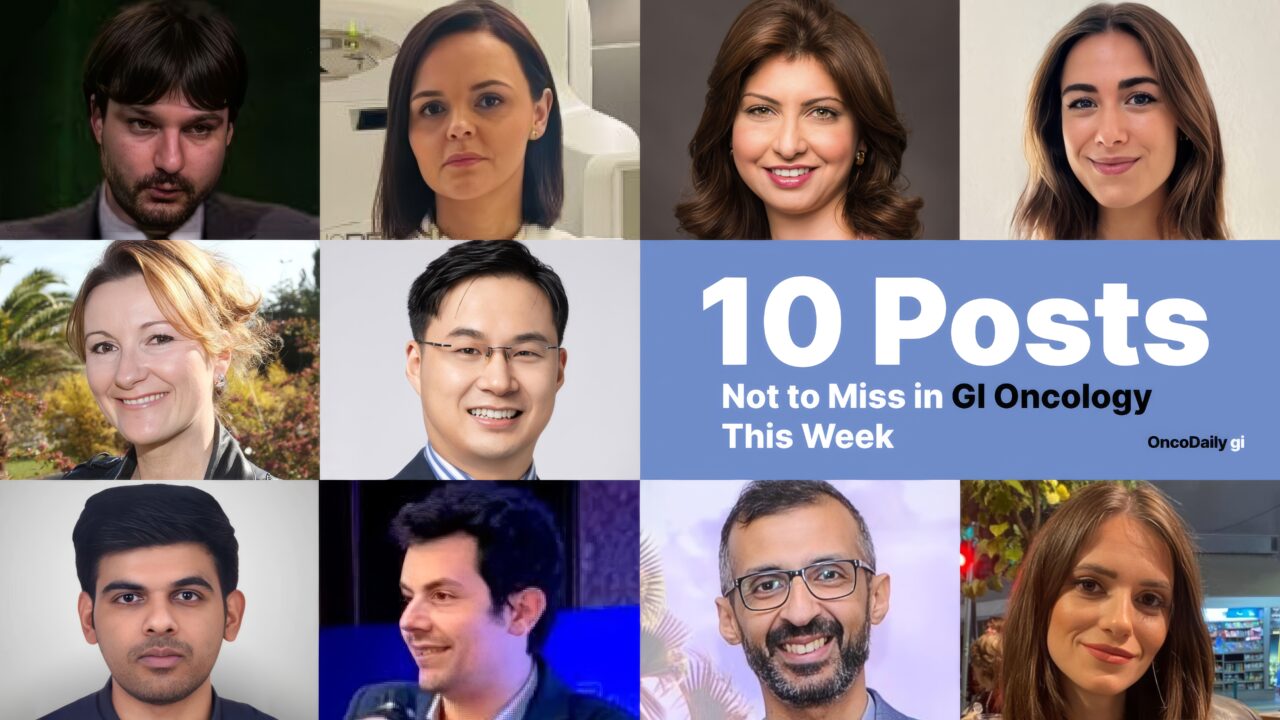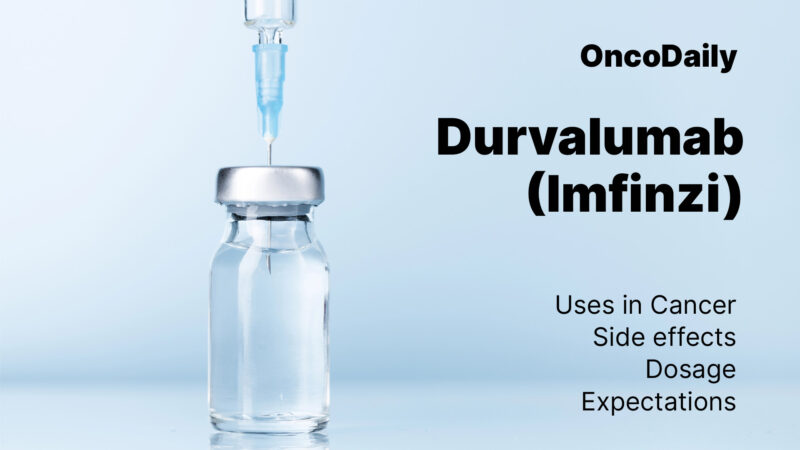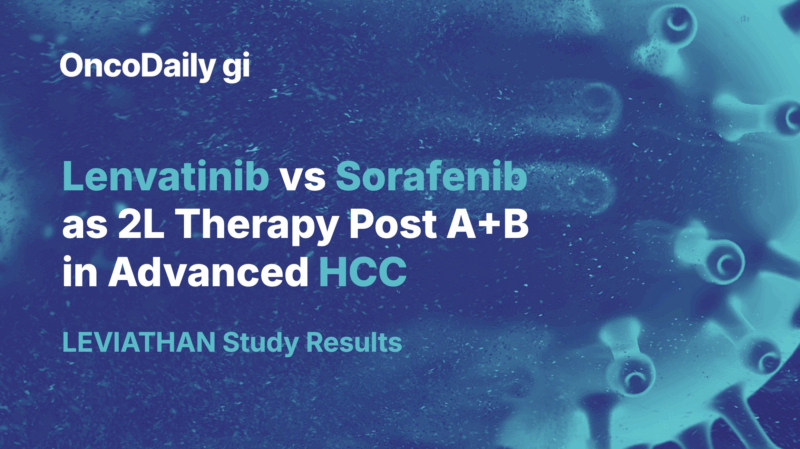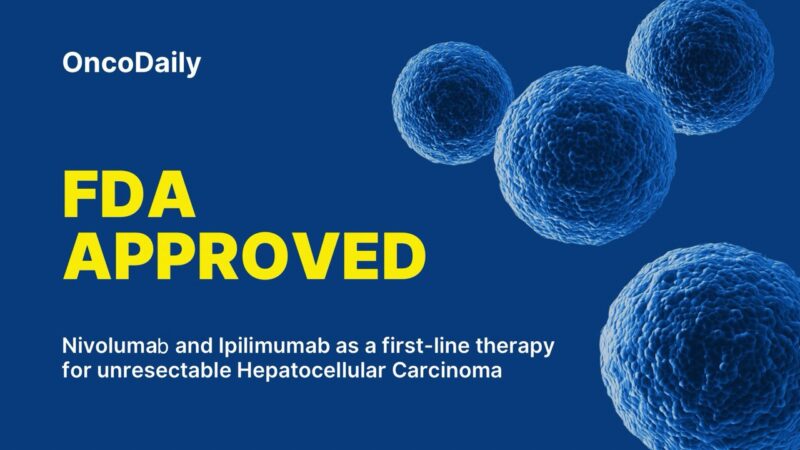The third week of November delivered important developments across GI oncology, with new insights spanning pancreatic, liver, colorectal, gastric, esophageal, and biliary cancers. From Italy, France, and Morocco to China, India, and Albania, teams shared studies that refine perioperative strategies, strengthen real-world immunotherapy data, advance early detection through liquid biopsy, and expand the role of AI-driven imaging and multidisciplinary care.
Key publications in The Lancet, JHEP Reports, Hepatology Research, The FEBS Journal, and Gastroenterology Insights, along with updates from ESMO GI, highlighted the continued acceleration of biomarker-driven treatment, innovative surveillance approaches, and critical evaluation of emerging systemic regimens.
Below is a curated selection of this week’s most notable contributions from leaders in GI oncology and translational research.
Catia Carconi, MD – Resident in Oncology & Research Scholar in Molecular Oncology and Immunology (Italy)
“Proud to finally share our publication in The Lancet.
In the CASSANDRA trial, PAXG significantly improved event-free survival compared with mFOLFIRINOX in resectable and borderline-resectable pancreatic cancer, supporting preoperative PAXG as a new standard option — and establishing it as the new benchmark comparator for upcoming trials.
This work was made possible through the dedication of patients and collaborating teams across Italy, and I’m deeply grateful for the opportunity to contribute.
Importantly, CASSANDRA was entirely funded by patient associations, underscoring the strength of independent research and community-driven science.A special thank you to my mentor, Michele Reni, for his guidance, perseverance, and commitment to scientific integrity.
To all the CASSANDRA unheard voices whose ideas shape the future.”
Ciro Celsa, MD – Assistant Professor of Gastroenterology, University of Palermo (Italy)
“Happy to share the results of the DT-Real Study, the first and largest international cohort evaluating real-world outcomes of STRIDE (durvalumab + tremelimumab) for hepatocellular carcinoma, now published in JHEP Reports.
The study confirms in routine clinical practice the efficacy and safety observed in the HIMALAYA trial, reinforcing STRIDE as a reliable therapeutic option for HCC in the real-world setting.
Grateful to colleagues David James Pinato, Giuseppe Cabibbo, and all partners from Università degli Studi di Palermo and Imperial College London for this collaborative effort.”
Andrea Casadei Gardini, MD – Associate Professor, Università Vita-Salute San Raffaele (Italy)
“New publication in Hepatology Research!
I’m very pleased to share our latest study, ‘Lenvatinib versus sorafenib for recurrent hepatocellular carcinoma after liver transplantation: A multicenter real-world analysis’.
In this retrospective multicenter cohort of 64 patients, we compared lenvatinib and sorafenib as first-line systemic therapy for post-transplant recurrence.
Key findings:
Overall survival was significantly longer with lenvatinib
• 19.5 vs. 11.4 months
• HR 0.31, p = 0.003
Supported by meta-analysis confirmation (HR 0.43, p = 0.0012)PFS: numerical advantage for lenvatinib, though not statistically significant
Safety: both regimens manageable
• Lenvatinib → more hypertension & proteinuria
• Sorafenib → more hand–foot syndrome & diarrheaThese real-world data support lenvatinib as a preferred first-line option for recurrent HCC after liver transplantation — an area still lacking robust prospective evidence.”
Catherine Alix-Panabières, PhD – Full Professor of Oncology, University of Montpellier; Visiting Professor, University of Hamburg; WG Leader, ELBS (France/Germany)
“World Pancreatic Cancer Day
Early detection. Real hope.On this WorldPancreaticCancerDay, our teams at the Liquid Biopsy LCCRH Lab and the Liquid Biopsy Lab – CHU de Montpellier are proud to contribute to two major initiatives dedicated to the very early detection of pancreatic cancer through LiquidBiopsy technologies.
PANLIPSY – French National Project
A nationwide effort advancing liquid biopsy and AI-based tools to detect pancreatic cancer at its earliest stages, improving diagnostic precision and guiding therapeutic decisions.
Grateful to all collaborators and supporting institutions, including ARC Foundation and Fonds pour Bertrand-Kamal.PANCAID – European Collaborative Project
A multidisciplinary European initiative accelerating the integration of circulating biomarkers into clinical practice for early pancreatic cancer detection.Through our involvement in PANLIPSY and PANCAID, our laboratory remains dedicated to driving innovation from bench to bedside — bringing new possibilities for patients and moving closer to earlier diagnosis and improved outcomes.
When pancreatic cancer is detected early, lives can truly be saved.”
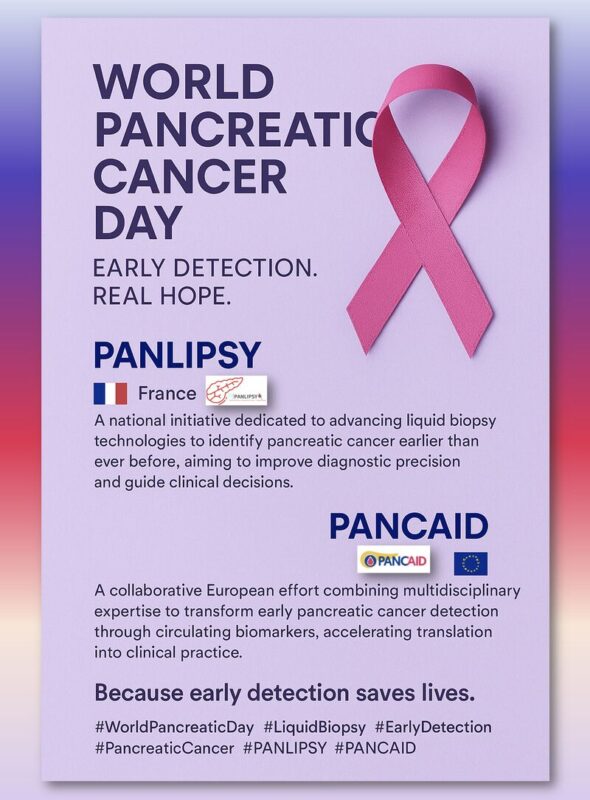
Hongcheng Zhu, MD – Radiation Oncologist, Fudan University Shanghai Cancer Center (China)
“Old dog, new tricks! Our newly published ESO-Shanghai 17 trial reports a feasible and safe postoperative chemoradiotherapy regimen for esophageal squamous cell carcinoma (ESCC).
This approach offers a valuable alternative for patients who did not receive neoadjuvant therapy prior to surgery, expanding treatment options in a setting where evidence has been limited.”
Nabil Ismaili, MD – Director of Medical Oncology and Radiotherapy, UM6SS & Mohammed VI University of Sciences and Health (Morocco)
“Exciting developments in the fight against colorectal cancer! Our latest systematic review, published in Gastroenterology Insights, highlights a major therapeutic shift for patients with dMMR/MSI-H disease.
For years, the standard approach relied on surgery followed by chemotherapy. Now, two emerging strategies are reshaping the landscape:
Boosted Chemotherapy: Adding atezolizumab to standard adjuvant chemotherapy after surgery significantly improves cure rates.
Immunotherapy First: Delivering immunotherapy before surgery can achieve complete tumor disappearance in many patients — often allowing them to avoid chemotherapy and its toxicities altogether.
This represents a pivotal step toward more personalized, effective care. Proud to contribute to this evolving field.”
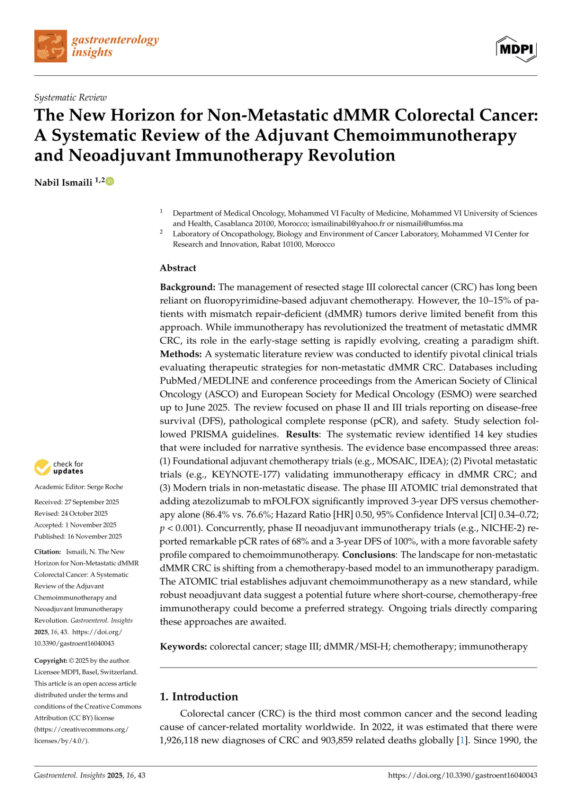
Nancy Ghattas – Vice President, US Oncology Commercial Franchise Head, Immuno-Oncology (USA)
“Given the pace of progress in our fight against gastric cancer, it’s hard to imagine a time when targeted therapies weren’t part of a patient’s toolkit.
Advances in biomarker testing have opened the door to new medicines — particularly for patients with HER2-positive tumors — and empowered individuals to better understand their disease and pursue the most effective treatment strategies.
At AstraZeneca, we continue pushing the boundaries of science to deliver transformative therapies for gastric cancer and bring meaningful options to patients worldwide.”
Fatjona Pupuleku Kraja, MD, PhD – Radiation Oncologist; Lecturer in Oncology, University of Medicine Tirana; ESO Ambassador (Albania)
“I’m pleased to share that our ASCO Daily News article, ‘The Expanding Role of SBRT in Oligometastatic Colorectal Cancer: Patient Selection and Clinical Perspectives’, has now been published.
The piece reviews the evolving evidence base, key considerations in patient selection, and the growing integration of SBRT within multidisciplinary care for oligometastatic colorectal cancer.
I’m grateful to ASCO Daily News for the opportunity, and to colleagues Monica-Emilia Chirilă, Ajra Šečerov Ermenc, and Claudiu Hopîrtean for their collaboration and continued contributions to advancing the field.”
Akhil Santhosh, MD, DM, MRCP (UK) – Medical Oncologist; Alumnus of AIIMS, PGIMER, and JIPMER (India)
“CheckMate 9DW may have set an unprecedented benchmark for overall survival in advanced HCC, but the regimen comes with important caveats and nuances.
In this Lancet edition, we highlight several pressing issues surrounding the trial and discuss why this combination should not yet be considered the universal first-line option for practising oncologists worldwide.”
Christina Arseni, PhD – Postdoctoral Researcher, University of Padua (Italy)
“I’m thrilled to share that part of my PhD research has just been published in The FEBS Journal!
Title: Oxygen-independent expression of HIF-1α during the cell cycle in hepatocellular carcinoma cells controls essential metabolic pathways under normoxiaKey Findings:
We demonstrate that HIF-1α accumulates and functions under normoxic conditions, linked to specific phases of the cell cycle — challenging the idea that HIF-1α typically accumulates only under hypoxia.
Normoxic HIF-1α supports the expression of proteins involved in glycolysis and cholesterol/steroid biosynthesis.
While Huh7 cells maintain HIF-1α protein under normoxia, HeLa cells do not, highlighting that this mechanism is cell-type specific.”
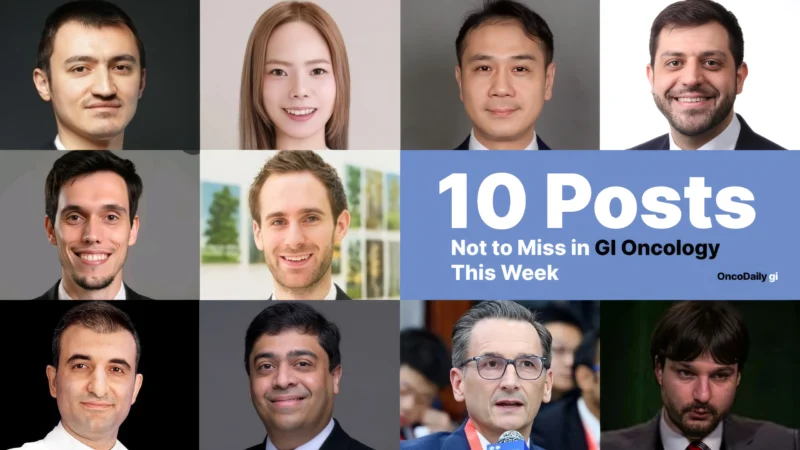
You can also read about 10 Must-Read Posts in GI Oncology from the Second week of November on OncoDaily.


